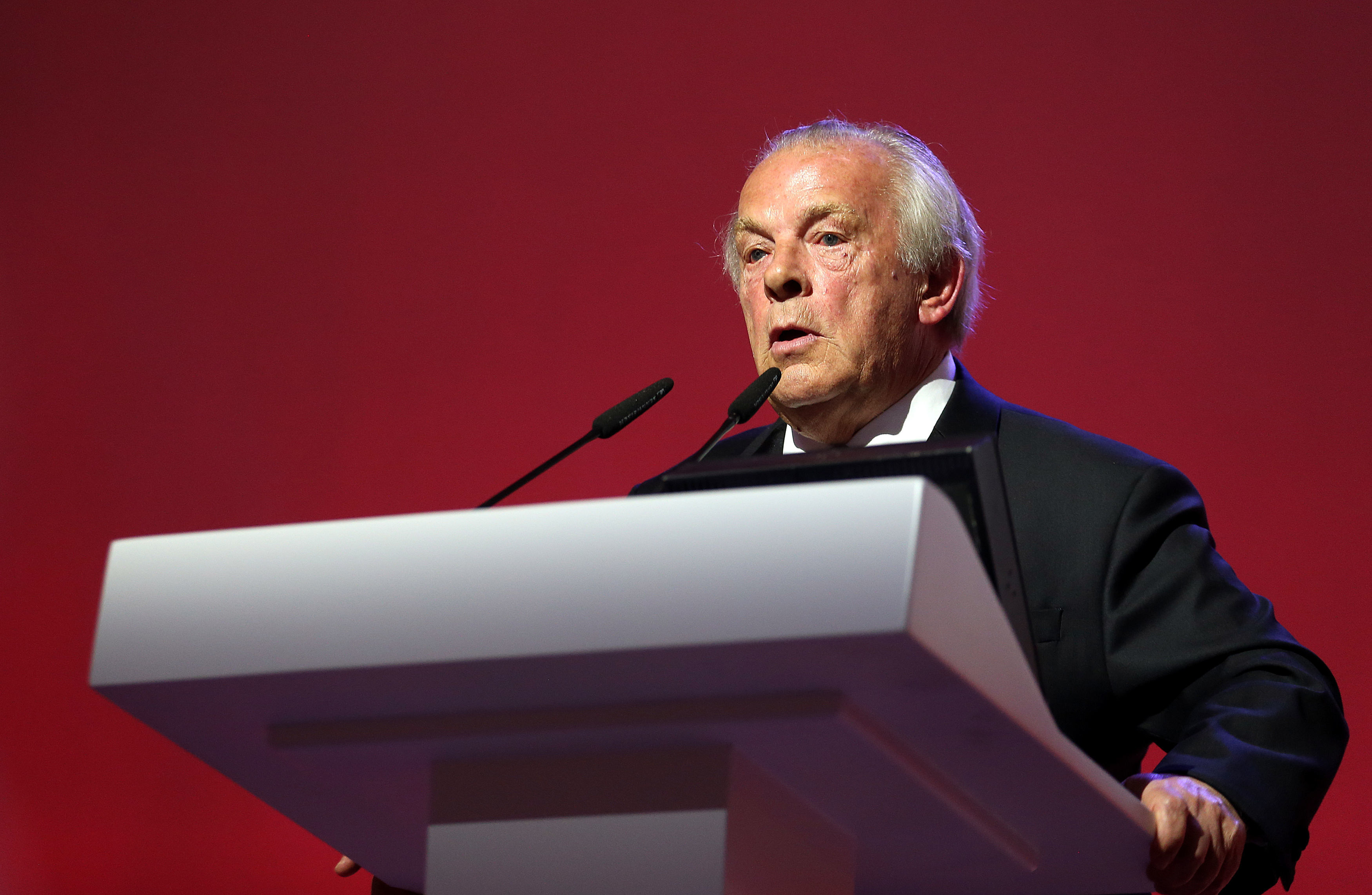
YOU don’t have to scratch away for too long to illustrate the huge financial gulf between football in England and Scotland.
Every week, a story comes along that paints the picture.
This time around, it’s the clamour to overhaul the English players’ union, the PFA.
It turns out Gordon Taylor, its chief executive, was paid more than £2 million last year for his efforts – or lack of, if you believe his critics – on behalf of players.
However you dress it up, that is an incredible salary.
And I wonder what the 73-year-old’s Scottish counterpart, Fraser Wishart, must think?
“Dearie me” – or words to that effect. Without knowing anything about what Wishart earns, I bet it’s no more than a drop in Gordon Taylor’s ocean.
Again, it’s a night-and-day situation for the game north and south of the border.
Taylor’s earnings came to light as the Charity Commission launched a probe into the way the PFA is spending its money.
That has arrived amidst a power struggle at the top of the union.
A group of 300 ex-players, including former Celtic star Chris Sutton, have called on Taylor to resign after four decades at the helm.
They want to take a wrecking ball to the PFA.
Rangers manager Steven Gerrard also got involved, saying there should be regular reviews of how the PFA is governed, something that doesn’t appear to be happening right now.
I reckon a wee bit of re-modelling would do the job.
I have sympathy for the guys who are calling for Taylor’s resignation. A lot of them have lost a lot of money through being poorly advised – and they blame the PFA.
Some of them have even lost everything, and been declared bankrupt.
They reckon the PFA should use some of the £50m that sits in its reserves to reimburse them.
I understand their position completely.
But I think it’s easy to focus on the failures of an organisation like the PFA while ignoring the good it has done over the years.
This isn’t about me, but the PFA looked after me when my back injuries meant I had to quit playing at just 29.
I know they have also helped a lot of ex-players over the years who have found themselves in grave financial and personal difficulty.
Gazza, for instance, has been well taken care of by the PFA – more than once – when he has needed it.
And Arsenal legend Paul Merson even credits Gordon Taylor for saving his life when he needed treatment for skin cancer and the PFA provided funds to help him out.
But all of that isn’t to say that the union doesn’t need reform.
It’s pretty clear that football has changed enormously since Gordon Taylor took charge of the PFA 40 years ago.
The amount of money players earn now would have been unbelievable in the late 1970s into the 1980s. It started to increase in the 1990s when the money from SKY TV came along.
But the growth in wages hasn’t slowed down – and now they’re in the stratosphere.
That has allowed the PFA to become a very, very wealthy organisation thanks to player contributions.
Players – both current and former – are absolutely entitled to ask questions about how that money is being spent.
They’re also, I’d argue, entitled to have a say in how it is spent.
Gordon Taylor has now agreed to an independent QC staging a “full and open review” of how the PFA is run.
Meanwhile, the Charity Commission will be digging into how its money is being spent.
If either probe finds failures or wrongdoing, then there should be consequences.
But in the meantime, more transparency ought to suffice.

Enjoy the convenience of having The Sunday Post delivered as a digital ePaper straight to your smartphone, tablet or computer.
Subscribe for only £5.49 a month and enjoy all the benefits of the printed paper as a digital replica.
Subscribe